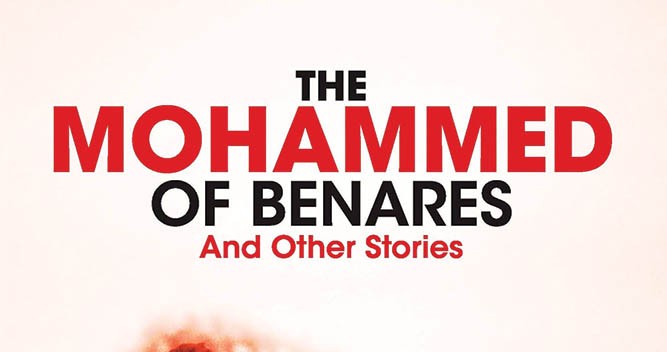

| Q |
Hockey books are quite uncommon. Celebrated Indian sports journalist Sundeep Misra has come out with an excellent anthology of hockey tales in his book, "The Mohammed of Benares and Other Stories".
The book’s 18 short stories are all captivating, with diverse themes. At times, he touched very sensitive issues.
"The Indian vs Foreign Conundrum" is about the perennial debate in both India and Pakistan regarding the foreign coach for the national team.
He very objectively assesses the performance of India under domestic and foreign coaches. At the same time, there is a qualitative analysis as well.
It spans a period of around three and a half decades with the first story from the 1982 Asian Games when in the much-awaited final between India and Pakistan watched by an overflowing crowd, including the Prime Minister Indra Gandhi, the Green-shirts annihilated the hosts 7-1. It is titled, "When hockey broke a million hearts".
Then there is a chapter, "The colossal drama of India vs Pak". It throws light on how political tensions sometimes become the central theme of an Indo-Pak match. However, it is summed up well, "Rankings have no legitimacy when it comes to an India-Pakistan game. The tie thrives on nerves, and the team that holds it the best usually ends up winning."
Mostly, and expectantly, Indian hockey remains the focus. Some big controversies have been recalled: nature of most bear relevance to what has been inflicting Pakistan hockey as well: For instance, the Captaincy issue. Ahead of the 2016 Olympics, Sreejesh Ravindran replaced Sardar Singh in "Who Deserved the Captain’s Armband".
Also for the 2016 Olympics, India left the outstanding right-half Gurbaj on disciplinary grounds which in all probability caused it missing out on its first Olympic medal since 1980.
Missing out on the semi-final at the 2000 Olympics is told from a very different angle. The campaign is beautifully narrated. India had one step into the semi-final, needing only a win against the lowly Poland in the last pool match. They went ahead 1-0 but the Poles equalised with less than a minute left.
It devastated the Indian players. About Dhanraj Pillay, their finest forward of the time, the book says, "Dhanraj had to be literally carried to the bench. The former Indian captain was shedding copious tears." His disappointment didn’t end there. A day later, Dhanraj was heard talking to his mother on phone, "Amma, three Olympics I have played and I couldn’t get a medal back… Amma forgive me, I have failed."
There are separate chapters on India’s three well-known coaches of recent time: Harendra Singh, Cedric D’Souza and Dutch Roelant Oltmans.
Harendra, who coached India’s 2016 Junior World Cup winning team, is described as emotional but meticulous. Cedric, in top-level coaching business for 24 years, is hardworking and the first Indian to bring structured hockey in the team. Plus, he has always been an optimist.
Oltmans has one of the finest CVs for any coach: guiding his native Holland to the titles of 1996 Olympics and 1998 World Cup, among other achievements. Here, each of India’s matches at the 2017 Sultan Azlan Shah under Oltmans is minutely analysed.
Apart from the national coaches, widely different styles of two of the most well-known Indian hockey administrators, K P S Gill and Narinder Batra are detailed.
Batra, now heading FIH, is rightly credited with bringing financial revolution in Indian hockey. And now the whole hockey world expects him to deliver the same at the global scale.
"Islah and His Romance for the Past" as the title suggests evokes nostalgia from one of Pakistan’s all-time greats. The memories of old days of Indo-Pak rivalry when it was so intense on the field but camaraderie off it. "In the seventies, when we visited India, Dilip Kumar, Amitabh Bachan, Rajesh Khanna all hosted us."
Dilip Tirkey’s saga appears to be a piece of fiction. India’s former captain of recent past, the great defender Tirkey entered politics and narrowly lost the 2017 elections contesting on the BJP ticket which now rules the country.
Tirkey comes from the tribal belt of Odhissa state. This area is known as the Red Corridor where Maoists insurgency has been prevailing for many years.
Under the aegis of the Dilip Tirkey Sports Research and Development Foundation, Tirkey created the 1st Rural Hockey Championship with the participation of 1500 teams. Yes, 1500 teams; not players. The championships ran for six months.
Though Indian hockey is showing signs of resurgence, there have been some colossal failures in the recent past. There is an exhaustive post mortem of India’s show at the 2012 Olympics where they ended last (12th). All the shortcomings cited apply to Pakistan hockey too.
Coming to the chapter which carries the title of the book, "The Mohammed of Benares", is the most moving obituary of the master dribbler Mohammed Shahid, rated by many as India’s most artistic player since Dhyan Chand. The last line, "The holiest city of the Hindus gave rise to the Mohammed of Indian hockey" epitomises the cliché "Sports transcends culture and religion".
Beautifully written; at times one wonders is it poetry or prose. The book is a wonderful read not only for hockey but all the sports lovers and not only Indians and Pakistanis.